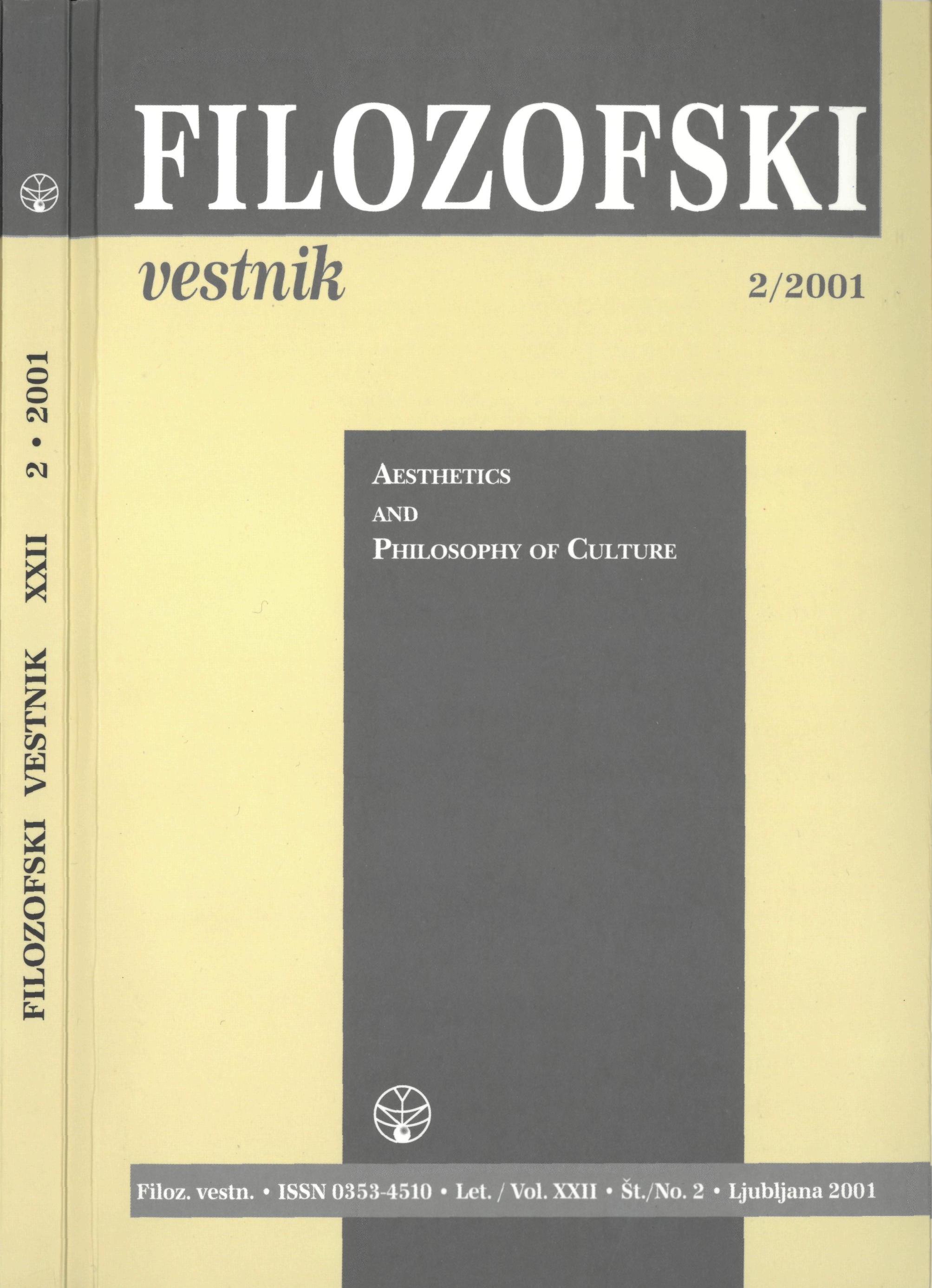Izvorni pomen Kitajske pismenke za »lepoto«
Ključne besede:
estetika, filozofija kulture, kitajska kultura, lepotaPovzetek
Kitajska pismenka je ideogram, ki je bližje človekovi ideji stvari kot izgovorjavi besede za stvar. Očarani nad tern dejstvom, so mnogi Kitajci skušali slediti izvornemu pomenu kitajskega znaka za lepoto, da bi osvetlili sodobne raziskave v estetiki. V članku avtor raziskuje nekatera najbolj vplivna mnenja o izvornem pomenu lepote, ki so razširjena na Kitajskem ter pokaže zakaj in kako so ta napačna ali nepopolna. Prvo mnenje, s katerim se avtor ukvarjaje, daje pismenka za lepoto zapisana kot »velika ovca«, tako da je izvorni pomen lepote nekako v zvezi s čutilom za okus, oz. natančneje, s slastnim. Po drugem mnenju naj bi pismenka za lepoto »posnemala človeka, ki nosi na glavi ovnove roge ali ovco«. Nekateri kitajski učenjaki so celo predlagali, da je bil ta človek poglavar ali čarovnik v primitivnem plemenu, ki je izvajal ritualni totemski ali čarovniški ples. Tretje mnenje je, da pismenka izgleda kot človek, ki nosi perje. Po kritiki teh treh navedenih mnenj, pride avtor do sklepa, daje pismenka za lepoto na Kitajskem izvorno posnemala lepega človeka. Posnemala je takšnega človeka preprosto zato, ker so ljudje menili, daje človek lahko lep. To je znak izvora njihove estetske zavesti: niti zaradi religije niti zaradi neposrednega občutka ust ali jezika.Prenosi
Podatki o prenosih še niso na voljo.
Prenosi
Objavljeno
2016-01-13
Kako citirati
Gao, J. (2016). Izvorni pomen Kitajske pismenke za »lepoto«. Filozofski Vestnik, 22(2). Pridobljeno od https://ojs.zrc-sazu.si/filozofski-vestnik/article/view/3606
Številka
Rubrike
Articles
Licenca
Avtorji jamčijo, da je delo njihova avtorska stvaritev, da v njem niso kršene avtorske pravice tretjih oseb ali kake druge pravice. V primeru zahtevkov tretjih oseb se avtorji zavezujejo, da bodo varovali interese založnika ter da bodo povrnili morebitno škodo.
Podrobneje v rubriki: Prispevki





